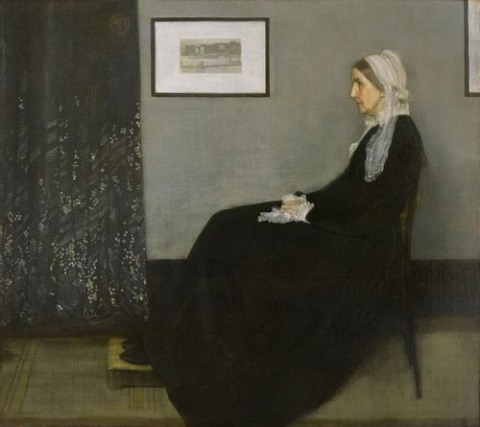
The Underground Thomist
Blog
Fighting One’s GrandmotherSunday, 12-28-2014
“We often read nowadays of the valor or audacity with which some rebel attacks a hoary tyranny or an antiquated superstition. There is not really any courage at all in attacking hoary or antiquated things, any more than in offering to fight one's grandmother. The really courageous man is he who defies tyrannies young as the morning and superstitions fresh as the first flowers. The only true free-thinker is he whose intellect is as much free from the future as from the past.” -- G.K. Chesterton, What's Wrong With the World
|
The New Original SinSaturday, 12-27-2014
So you thought metaphysics doesn’t influence politics? Think again. Once upon a time, false ideas about biology were used to keep certain people down. In the name of liberation, some reformers decided that the body means nothing. Yet in the name of science, others insist that the body means everything. Considering this confusion, is it any surprise that no matter how often it is beaten down, biological determinism keeps coming back in new forms? A case in point is a speaker at the publically-funded White Privilege Conference in Madison, Wisconsin a few months ago. Never heard of it? Maybe you should have. The organizers claim that 1500 people attend every year from more than 35 states as well as Australia, Bermuda, Canada, and Germany. The person I am quoting is a former high school English teacher and current doctoral candidate in something called “critical whiteness studies” at a public university in Canada. Her name and the name of her school are not important; her metaphysics is. The nineteenth-century physiologist Jacob Moleschott famously remarked that “The brain secretes thought as the liver secretes bile.” Apparently the speaker thinks white skin secretes racism in much the same way. For one might suppose that racism is an attitude in the mind -- but no, she says, it is a characteristic of the body: “I came to higher ed to study. What is this problem that I'm scared of? I don't know what to do. My principal is scared of this. Where do I point? Who's at fault? My white body is at fault.” “Being a white person who does anti-racist work is like being an alcoholic. I will never be recovered by my alcoholism, to use the metaphor. I have to everyday wake up and acknowledge that I am so deeply imbedded with racist thoughts and notions and actions in my body that I have to choose every day to do anti-racist work and think in an anti-racist way.” “My partner, who is a man, can't tell you about feminism. ... You need to learn what it is like to be a woman from a woman. He can't teach that. I can't teach students of color nearly as well as a person of color can.”
|
Counter-Intuitive Ethics?Friday, 12-26-2014Sometimes people try to defend evils by drawing a false analogy with the natural sciences. “Lots of things in science are counter-intuitive,” they may say. “For example, you might think the sun is only a little higher than the clouds, but in reality it’s so far from us that its light takes more than eight minutes to get here. Well, lots of things in ethics are counter-intuitive too. You might think no one should ever have an abortion, but in reality it’s often a necessary evil.” The flaw in the analogy is that propositions like “Never commit evil, even for the sake of some good” aren’t like sense impressions, which can be mistaken; they are self-evident first principles of reason, like “nothing can both be and not be in the same sense at the same time.” They cannot be mistaken; in fact, they are the means by which we discover that other things are mistaken. Anyone who tries to suggest that something can both be and not be has missed the point of what being is. Anyone who supposes that evil may sometimes be done has failed to grasp what evil is. By the way, I am not suggesting that nothing in ethics is counter-intuitive. To a person habituated to vice, virtue itself seems counter-intuitive. Something tells me that astronomy teachers don’t face that particular difficulty.
|
ProclamationThursday, 12-25-2014
Some millions of years having passed since the creation of the world, when, in the beginning, God created heaven and earth; Some thousands of years from the salvation of man when the family of Noah survived the flood; About nineteen centuries after the promise was given to Abraham, the father of our faith; Many ages after Moses brought the people from bondage in Egypt; A thousand years from the anointing of David as King over the chosen people; In fulfillment of the times and years and months and days discerned by the vision of the prophets; In the course of secular history: In the one hundred and ninety-third Olympiad; Seven and one half centuries from the founding of the city of Rome; In the twentieth year of the reign of the Emperor Octavian Augustus, while the whole world enjoyed a span of peace; In the sixth and final age of human achievement; Wishing to consecrate the whole world and all time by his blessed presence, Jesus Christ, eternal God, and Son of the eternal Father, conceived as man by the overshadowing of the Holy Spirit, after nine months of growth in the womb of his mother, Was born of the Virgin Mary and for our salvation became man in Bethlehem of Judah. Now in our own times this marks the birthday of Our Lord Jesus Christ after the manner of all flesh. Source: Columba Kelly, O.S.B., “Proclamation of the Birth of Our Lord Jesus Christ,” St. Meinrad liturgical music. Text and Music: © 1971, 1993 Saint Meinrad Archabbey; All Rights Reserved. Quoted by permission.
|
God Rest Ye, Merry MelancholicsWednesday, 12-24-2014
By the lights of the popular culture, the weeks up to Christmas are “the Christmas season” when everyone is supposed to be jolly. Those who cannot rouse themselves to hilarity are often despondent. They think there is something wrong with them. But according to the liturgical calendar of the Church, the popular culture has it backwards. The season of Christmas doesn’t begin until Christmas. The season through which we have been passing and which ends with tonight’s Vigil is Advent, and it is a penitential season. Its keynote is not hilarity but longing -- longing that is quiet and expectant, but unfulfilled. It is not unfaithful to confess that we are unfulfilled, and the pretense of fulfillment is not what makes us happy. St. Paul spoke searchingly of how we “groan” in the longing that what is mortal in us may be “swallowed up by life.” Yet this is the same Paul who counsels us to rejoice. How is that possible? This question, which seems so hard, is really easy. Even the fact that we mourn is a reason for joy. For how could we sorrow at all, if we were merely evolved dirt? If Darwin got it right, no traits should persist in the genome unless they have adaptive value. That obviously fails to fit the facts. If we were perfectly adapted to the way of this world, we would not grieve when dear ones died, but go right on to the next thing. We would not experience strange longings for we know not what that are not to be found in this life. We would not even have consciences, for whatever we desired would be good – just in the sense that we desired it. Then what is the problem? Have there not yet been enough millions of years to put us right? Surely there have been. Plainly we are not made for this world – not even by natural selection. Then we are made for another. I defy any atheist to pretend that he does not know what I am talking about. When we behold the visible beauties of this world, our spirits soar. Yet who could deny the sweet piercing pain in that transport? The greater the visible beauty we see, the greater the longing for an invisible Beauty that we do not see, whether or not we know or speak its name. The difference between the Christian and the atheist lies not in our longings, but in our theologies. His theology cannot account for what we both feel. My theology can. And so when I reflect on this vale of tears, I cannot help but be jubilant. If it were really all there were, then I could not even recognize it as a vale of tears; I would be at home in it. Blessed are the discontented. Blessed are they who weep. Blessed are they who lay aside their satisfactions for the Creator of their longings, for they will be satisfied. Rejoice!
|
Then Would You Change Your Mind?Tuesday, 12-23-2014
Sometimes it transpires in conversations about the reality of God that the other fellow peppers me with hostile objections but doesn’t seem to hear my answers. In cases like that, I have occasionally put the question, “Suppose we isolated ourselves for a few weeks so that I could answer every last one of your objections. And suppose you could raise no objections to my answers. Then would you change your mind?” Most hostiles answer “No.” Which makes it reasonable to point out, “Then your objections aren’t your real reasons for your view. What do you suppose the real reasons might be?” I insist on an answer. Sometimes this is a moment of honesty. Occasionally, someone turns the question back on me. Come on, Budziszewski, play fair. Suppose you were out-argued and you ran out of objections. Would you change your mind? No, I wouldn’t. But I have better reasons. I would not change my mind about God because my warrant for His reality is greater than my confidence that I can always discover the flaw in an argument against Him. What is that warrant? Experience. As its unknown author argues in the eleventh chapter of the book of Hebrews, Christian faith is not just a subjective belief in the things hoped for, or a subjective conviction of things not seen, as the passage is often mistranslated. Rather it is a first taste of participation in the very substance of the things hoped for (the hypostasis), and the evidence or proof of things not seen (the elenchos). I believe in the invisible for the same reason I believe in the visible: I have touched it.
|
He’s Not the Boss of MeMonday, 12-22-2014
Readers: According to Google Analytics – don’t ask me how they know this – about a quarter of the visitors to this website are under 25, half are 25-44, and the final quarter are 45 and over. Over the years I’ve received hundreds of letters about my books, articles, and online writing from undergraduate and graduate students around the country -- some friendly, some hostile, all interesting. Topics run the gamut from abstract and philosophical to concrete and personal. I’ve run letters on the blog from time to time before, and I’ve been considering running one every Monday. Would that be interesting or uninteresting? Let me know. Actual query: You say that God is good, but what makes Him good? You say that we have been ruined by trying to be good without God, but by whose standard? God’s? Of course if we break away from Him we will be ruined by His standard, but what makes His standard better than yours, mine, or my cat’s? All I really want to know is what makes this Being better and more morally right. Reply: Your mistake is thinking of God as something separate from Good: He may be in accord with it, He may not. That’s not how it is. God and Good aren’t two things; they are one. He simply is the Good, and good things short of Him are good because He made them. It’s His goodness that these thousand goods reflect, as white light refracted through a prism gleams in a thousand brilliant colors -- love, joy, wisdom, beauty, strength, and all the rest. Now God cannot be at odds with Himself. It is because He is the Good, and with infinite wisdom knows Himself, that He knows what Good is. To think that you, or I, or your cat might know Good better than Good knows Himself is pretty silly. Another way to answer was suggested by C.S. Lewis. God is the source of our ability to know about Good. He gave us our minds; He gave us our conscience; it was He who gave us the knowledge that evil and good are different, He who polarized our souls to fear the one and long for the other. The very power to ask questions and form judgments about the matter comes from Him and depends on Him. So to set this power against Him is like sawing off the branch that we are sitting on. That answers your question; in fact it answers it twice. But here is something else to think about. One of our names for God is the Desire of Nations. The reason for this title is that if He Himself is the Good, then whether or not we know it, to long for the Good is ultimately to long for Him. Turning the same thought around, to seek good things apart from the One from whom their goodness flows is ultimately to stuff our mouths with dust and ashes. There will come a day when you wonder why you can’t swallow. Come to the Fountain instead.
|





